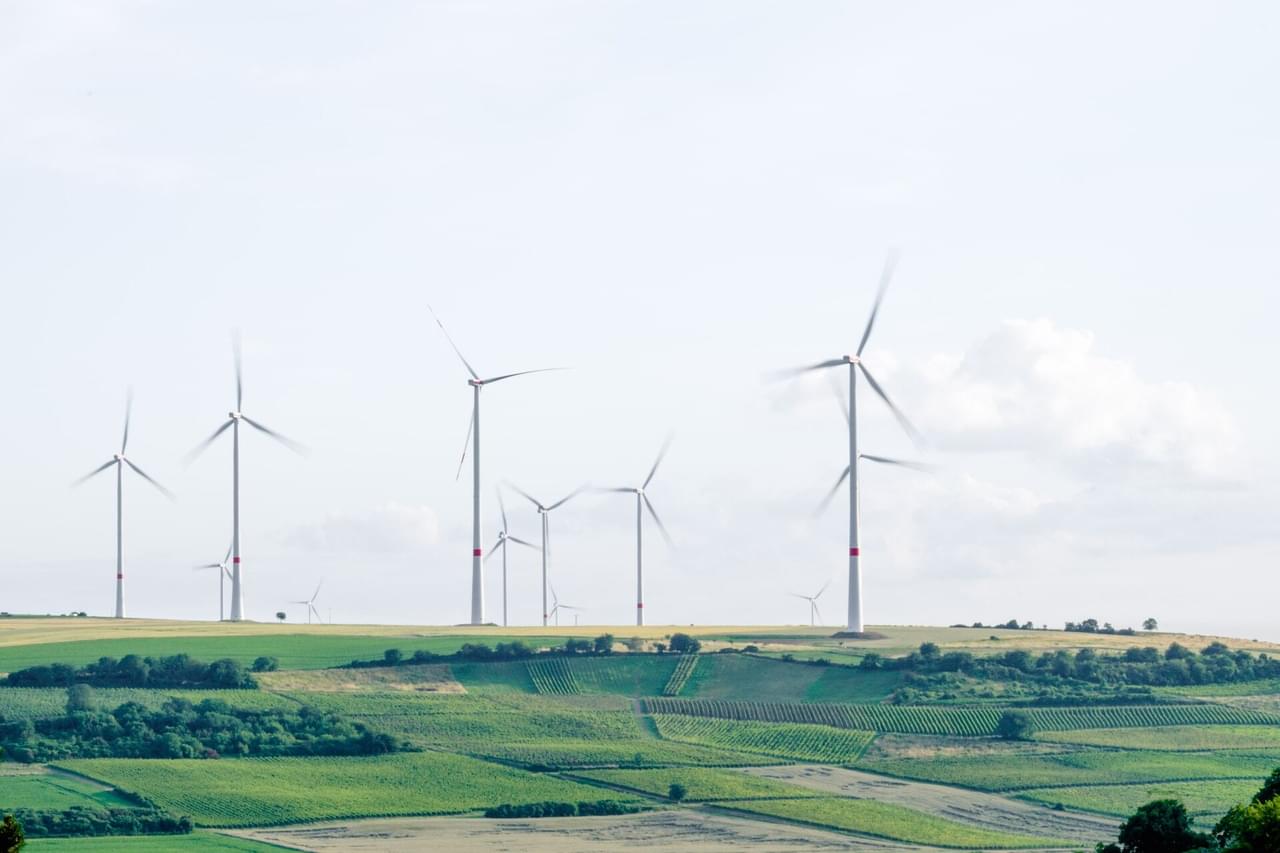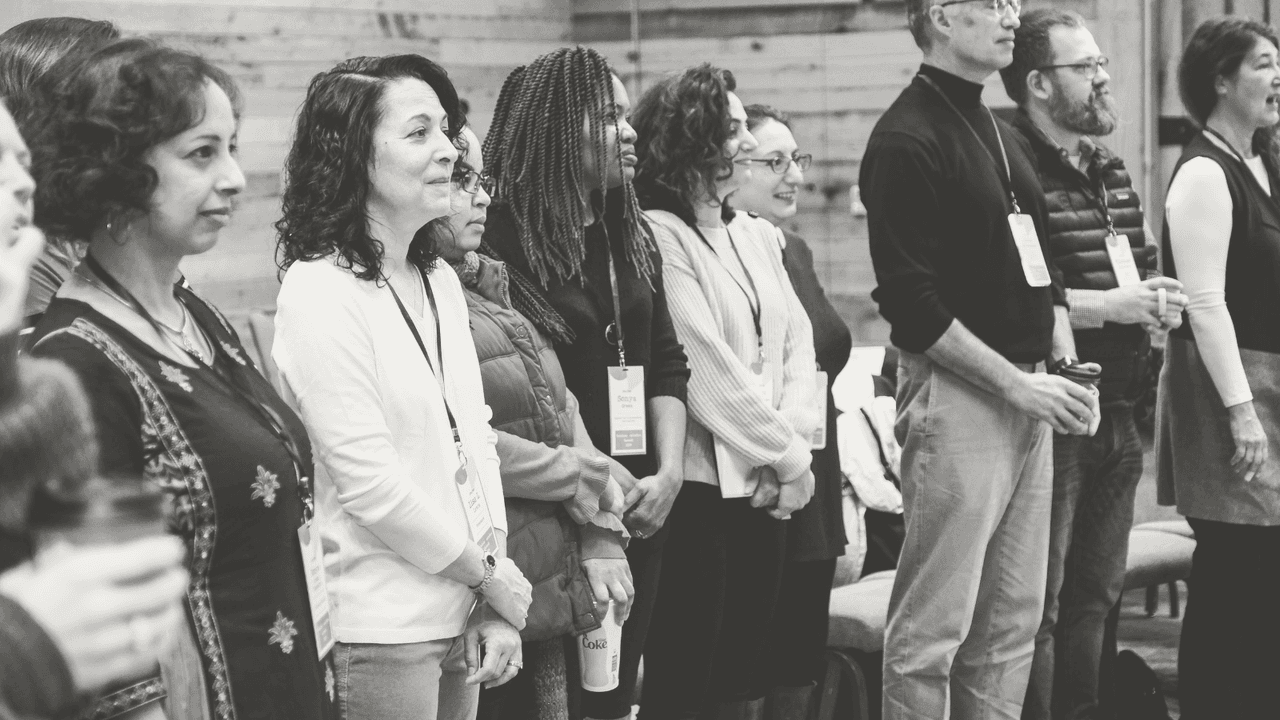
Insights
Why EJC supports climate change reporting and environmental journalism

As heat records continue to be broken across the globe, impactful and engaging climate journalism is much needed.
Investigating these topics and discussing potential solutions for environmental issues is a crucial public service, especially given the role played by the media in shaping the discourse around the climate crisis. Climate crisis reporting and environmental journalism play a crucial role in shaping public policies and aiding individuals in making informed decisions about their future.
Recently, its significance has grown even more, particularly in the context of achieving a fair transition to a sustainable future for everyone. Unfortunately, this task has also become risky. This year, while newsrooms and journalists continue to focus on reporting about climate change, the European Green Deal and the agreements made at the UN Climate Change Conference - COP28 in December will also be high on their agenda: the practicality of these policies and agreements, their implementation and how communities will be involved in these plans. The EJC will remain steadfast in its support of journalists, newsrooms, and freelancers seeking to expand coverage of these areas.
This post is part of our Programme Insights series. Newsletter subscribers get exclusive insights into the European Journalism Centre’s programme strategy and impact as we evolve to support an industry in flux.
2023 Climate Journalism Award
With a total prize amount of EUR 10,000, this award was created to acknowledge outstanding climate reporting. In 2023, it recognised work that elevated the importance and visibility of climate reporting or showcased innovative thinking in this area. Journalists, newsrooms and freelancers submitted 181 eligible entries from 46 countries in 5 categories: Data, Storytelling & solutions, Visualisation, Investigative reporting, and Emerging talent.
The five winning entries, as well as others, can all be found here. Our website has successfully reached a significant milestone of 10,000 page viewers. We are thrilled to see such a positive response from our audience and appreciate their interest in this matter.

2023 News Impact Summit (NIS) - Elevating Climate Journalism
This event, held on October 12 in Lisbon, brought together 225 staff journalists, freelancers, climate YouTubers, activists and other media professionals to discuss the best practices and latest tools to improve climate reporting and environmental journalism. How journalism interfaces with climate science sparked a lively debate on the challenges and opportunities facing climate journalists in an era of rapid technological advancement and growing climate urgency. The sessions covered topics such as using satellite imagery and data to visualise climate stories, how to leverage short-form video in environmental reporting and ways to investigate environmental crimes across borders.
This year’s NIS partnership with the European Space Agency (ESA) highlighted the need for closer collaboration between scientists and journalists and the role of the media in bridging the gap between science and the public. For the first time, NIS welcomed a significant number of activists, civil society members, sustainability experts, and government officials.
The EJC distributed 7 grants to cover the attendance of young journalists (GNI Fellows) and mid-career journalists of diverse backgrounds who wouldn’t otherwise be able to attend the summit. The carbon footprint of our team’s flights and those of the invited speakers and grantees were offset through donations to the Dutch initiative Trees for All.
The summit’s main sessions are available on YouTube.
YouTube Climate Journalism Bootcamp
This event took place on October 13 and 14 in Lisbon, with 21 journalists and climate video creators from 8 countries and 19 newsrooms across Europe. Along with the EJC and mentors from Deutsche Welle and Vice News, participants discussed best practices for climate journalism and what trends would be covered next. YouTuber Marvin Neumann offered practical tips for navigating misinformation and countering filter bubbles on YouTube. UK-based climate scientist Ella Gilbertrecorded a 7.5% increase in “Click-through Rate” on videos after updating the thumbnails on her YouTube channel Dr.Gilbz. Her content focuses on debunking climate fake news.
This bootcamp is an offshoot of a 3-month accelerator programme that trained 25 newsrooms and journalists to inform better and engage younger audiences on their YouTube channels at the beginning of 2023. The programme empowered news creators to elevate their quality content on the platform against mis and disinformation, strengthen the financial viability of independent media, and engage younger audiences.

Data Journalism
In four episodes of the podcast and newsletter series Conversations with Data, we highlighted the best ways to leverage data for climate reporting. It discussed the importance of using data to report on the racial justice component of climate reporting, it focused on how to improve the impact of local journalism, as well as the use of visualisations and OSINT to level up environmental coverage and investigations.
We also published original articles on climate solutions journalism, climate metrics, and gender. This content, facilitated by data experts, reached a global community of 20,000+ data journalists and data professionals.
Datajournalism.com in 2023:
- 'Conversations with Data' Newsletter subscribers: 10.950 with an average open rate of 38%
- 'Conversations with Data' Podcast audience: 5.072
- Discord community members: 1.143
- DJ.com network members: 24.900
- The State of Data Journalism survey respondents: 778 (in 2023)
Cross-Border Environmental Investigations
Through grants and training, the EJC helped the production of 6 cross-border environmental investigations through IJ4EU, the largest grant scheme for cross-border investigative journalism in Europe. Dry to the bone explored how a deadly mix of rising temperatures and inhumane working conditions is harming the health of agricultural migrant workers in Southern Europe. The project team was invited to speak at the Italian Ministry of Labour and Social Policies to discuss the investigation results and received an award. Another investigation revealed how big polluters are raking in profits through a scheme designed to cut greenhouse gas emissions. This project, published in May 2023, can potentially drive discussion and policy change in Brussels - as has happened in the past with stories funded by IJ4EU. A third story unveiled the little-known environmental threat posed by nurdles, tiny plastic pellets that can be found everywhere, from the North Sea coastlines to Mediterranean beaches in Europe.
A new edition of IJ4EU has just been announced with 2 million euros to support cross-border investigative journalism. The call for applications is set to open on the 1st of February.
Supporting Newsrooms and Climate Reporting Teams
The EJC helped newsrooms such as BBC Future Planet and Context with grants and mentoring through our Solutions Journalism Accelerator. This programme supports solutions-focused development journalism, and grantees have produced a wealth of stories that show how climate change intersects with other beats, such as healthcare, gender inequality, food insecurity, or decolonisation. These reports often highlighted stories of communities and people championing climate solutions. This Accelerator also nurtures collaboration between journalists and mentors in the Global North and the Global South. This led some of Europe’s main media outlets to cover how the policies of countries distributing foreign aid affect communities in the Global South, which disproportionately bear the weight of climate change. Coverage produced in the context of this programme has driven discussions at UN agencies, and journalists who worked on these stories have been invited to advise government officials on topics like migration and inequality.
If you missed our latest free Solutions Journalism guide "11 tough questions on how to do Solutions Journalism" download it now on the button below
Training sessions
We trained 30 journalists on best practices for climate reporting during a workshop hosted at the International Journalism Forum in September in Athens, helping to improve coverage of the topic in Greece. The country has lagged behind in its reporting of climate issues despite facing dire consequences. This training highlighted the effectiveness of solutions-oriented climate reporting to report on environmental issues, based on evidence that solutions-oriented stories drive audience attention, engagement and can help generate new sources of revenue. This approach helps to counter the ‘doom and gloom’ sensation among readers as well as news avoidance.

All these initiatives were rolled out in partnership and with financial support of Google News initiative, YouTube, the European Commission and Bill & Melinda Gates Foundation. These programmes have engaged and nurtured cross-border and cross-sector collaboration among hundreds of media organisations, staff journalists, freelancers, and other media professionals but also scientists, experts, activists and other NGOs working in the climate sector.
These initiatives fit into the EJC’s mission and vision and broader strategic goals:
- to foster a resilient digital news ecosystem in Europe where trustworthy content stands out and is trusted over disinformation.
- to support, nurture, and recognise high-quality, impactful journalism.
- to support independent media and freelance journalists across Europe who play a vital role in producing quality and innovative journalism that promotes healthy democracies and public debate, informs societies on the world’s urgent dilemmas, and keeps those in power accountable.
We are measuring the impact- short, medium and long-term -of these initiatives. More results will be included in the EJC’s annual report to be published in the first quarter of 2024.
Please make a contribution today
Your support will help us continue providing the kinds of opportunities journalists tell us they rely on
Would you like to have a direct conversation about making a donation? Please get in touch.







